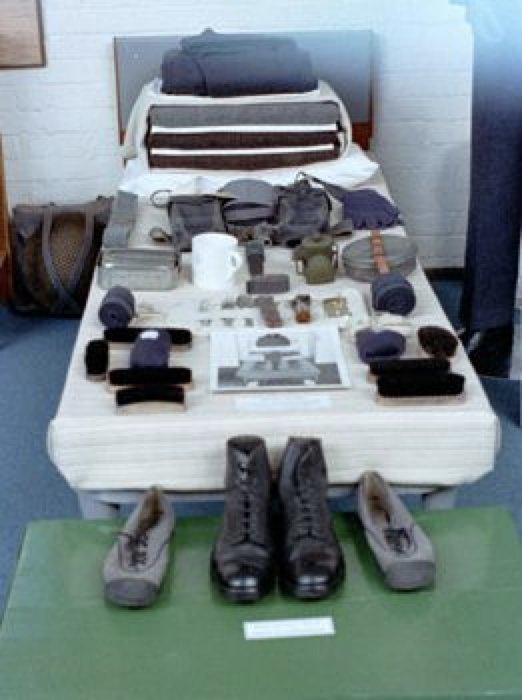Why Project Controls is the ideal job for military retirees
In our last blog, we discussed how the adaptability and problem-solving skills honed in the military can seamlessly transition to a career in project controls. This time, we’re turning our focus to another critical skill that ex-forces personnel bring to the table: attention to detail—a really valuable trait especially in the Project Controls profession.
In our fourth part of this ex-forces series, Bob delves into the precision skills that make ex-forces personnel particularly well-suited for excelling in project controls.
The military’s mastery (mostly) of attention to detail
If you’re currently serving or ex-forces, you’ll know that attention to detail is something that’s robustly encouraged from day one of your career.. This isn’t about being a neat freak (although it can sometimes be a side effect); it's about understanding that overlooking even the smallest detail can have serious consequences, from mission failure to jeopardising lives. If you see someone patting their pockets as they leave the office, odds are they are ex military checking to see if they have left an imaginary button undone.
In project controls, being meticulous is just as crucial when ensuring the accuracy of budgets, schedules, documentation, and compliance monitoring—elements that are really important for any project’s success.
The military's emphasis on detail
In the military, especially during basic training, no task was too minor, every detail could be a contributing factor to the mission's success and if missed usually resulted in everyone doing more press ups or a cheeky sprinting session. The focus on detail that you developed is the result of rigorous training and real-world experience.
You might recall the intense scrutiny of the Directing Staff (DS) —whether it was a bed pack thrown out of the window during training for not being up to standard or a last-minute check of documents and equipment before deployment. These experiences ingrained in you the importance of thoroughness and precision, where even a small oversight could lead to significant, sometimes catastrophic, outcomes. These same qualities make project controls an excellent fit for someone with those skills.
Accurate budgeting and scheduling
When it comes to project controls, the precision you learned in the military proves invaluable in budgeting and scheduling. Accurate budgeting is more than just crunching numbers—it requires an understanding of all cost factors, including those that aren’t immediately visible.
Similarly, effective scheduling demands a detailed grasp of all tasks, dependencies, and potential bottlenecks. As ex-military you bring a level of diligence that minimises errors, ensuring that projects remain both realistic and achievable within their constraints.
Meticulous documentation: a skill transferred
Ever held an inventory or an account / imprest? Then you remember the importance of accurate records. This discipline is just as crucial in project controls, where thorough documentation is crucial to supporting project tracking, stakeholder communication, and historical referencing. Your meticulous approach ensures that every detail is captured precisely, facilitating smooth project execution and adherence to standards.
Rigorous compliance monitoring
Just as you followed protocols in the military, project controls require stringent adherence to a complex web of regulations and standards.
Overlooking a compliance requirement can lead to delays, financial penalties, or even the halting of a project. Ex-forces personnel have direct experience of training that follows protocols rigorously and brings a high level of attention to detail to compliance monitoring, ensuring that all necessary standards and regulations are met. This precision is another reason why project controls is a perfect job for retired military personnel.
The value of military precision in the civilian workforce
As the complexity and regulatory demands of projects continue to increase, the need for professionals who understand the importance of attention to detail has never been more critical. Your ability to focus on minutiae without losing sight of the overarching mission is uniquely suited to meet this need.
Your contribution to project controls will not only elevate the quality and precision of project management practices but also significantly reduces the risks of costly oversights and errors.
A crucial asset for project success
The military’s emphasis on attention to detail is more than just a skill; it’s a mindset that ensures precision, accuracy, and thoroughness in every task. This mindset is an invaluable asset for ex forces transitioning to project controls that can drive project success. As we continue to explore the unique strengths that ex-military personnel bring to the civilian workforce, it’s clear that attention to detail is just one more reason why they excel in project controls.
If you’re interested in learning more about how your military experience can translate into a successful retired military job in project controls, or if you know someone who could benefit from this path, don’t hesitate to connect with us.
Bob Sunderland
Director
Bob joined the military soon after realising studying for a computer science degree wasn’t for him. He headed to the careers office at his university (then a Polytechnic!), saw a poster from the RAF and immediately applied. His first role was working in a bunker in North East Scotland patiently waiting for the Russians to come over. Luckily they didn't. Later he applied to be aircrew on RAF helicopters, responsible for almost everything behind the pilot and sometimes an odd pilot or two. He left the military in May 2015 as a Master Aircrew with only a general idea of what his second career would be. He worked for a leading aviation company, eventually working in project management/project controls including risk management and later moved to a consultancy as a Project Control Manager specialising in risk. Bob is now Director of Business and Strategy Development at Blueprint Project Solutions Ltd.


